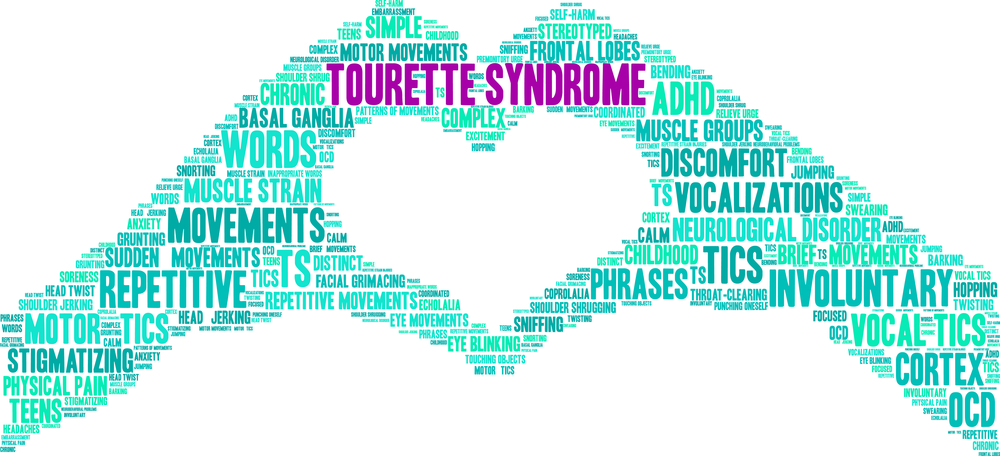Natural Relief for Tourette’s:
Calm Tics and Improve Daily Life
Living with Tourette’s Syndrome can make daily routines challenging due to sudden tics and involuntary movements.
Our gentle, drug-free approach is designed to help reduce the frequency and intensity of these tics, offering a path toward greater comfort and control.
By providing subtle support to the muscles involved, we help ease the impact of motor and vocal tics, enabling you to navigate daily activities with more confidence and ease.
Our treatment can significantly improve quality of life, empowering you to feel more at ease in both social and personal settings.
Tailored to each patient’s unique needs, our oral appliances are designed to support a more peaceful, balanced life for those with Tourette’s.
Benefits of Custom Oral Appliances for Tourette’s:

- Reduces frequency and intensity of tics by helping to relax the muscles involved in tic activity.
- Supports a drug-free, non-invasive treatment option for managing symptoms.
- Improves focus and comfort in daily activities such as speaking, eating, and social interactions.
- Helps stabilize the jaw and muscles, reducing tension that can contribute to tics.
- Custom-made for individual needs, ensuring a comfortable fit and effective results.
Take the First Step Toward Relief
If you’re ready to explore a new way to manage movement disorders and improve your well-being, we’re here to support you. Please feel free to reach out with questions or to schedule a consultation.
If you or someone you know is affected by a movement disorder such as Tourette’s Syndrome, know that relief is possible. Schedule a consultation today.
Frequently Asked Questions
CLOSED
Your content goes here. Edit or remove this text inline or in the module Content settings. You can also style every aspect of this content in the module Design settings and even apply custom CSS to this text in the module Advanced settings.
FAQ: Understanding Tourette's Syndrome
What is Tourette’s Syndrome?
Tourette’s Syndrome is a neurological disorder characterized by involuntary movements and vocalizations known as tics. These tics can range from mild to severe and can be motor (physical) or vocal. The condition often begins in childhood and can fluctuate over time.
What are the common symptoms of Tourette’s Syndrome?
The primary symptom of Tourette’s is tics, which can be motor (e.g., blinking, shrugging, facial movements) or vocal (e.g., throat clearing, grunting, repeating words). Tics are typically sudden, brief, and repetitive. They may vary in frequency, severity, and type.
What causes Tourette’s Syndrome?
The exact cause of Tourette’s is unknown, but it is believed to involve a combination of genetic and environmental factors. Research suggests that it may result from abnormalities in certain brain regions and neurotransmitters that regulate movement.
Is Tourette’s Syndrome hereditary?
Yes, Tourette’s often runs in families, suggesting a genetic link. However, the way the disorder is inherited is complex, and not everyone who inherits the genetic predisposition will develop Tourette’s.
How is Tourette’s diagnosed?
Tourette’s is diagnosed based on the presence of both motor and vocal tics for at least one year. There is no specific test for Tourette’s; instead, a doctor will evaluate your symptoms, medical history, and rule out other potential causes for the tics.
Can Tourette’s be cured?
There is currently no cure for Tourette’s Syndrome, but many individuals experience improvement in their symptoms as they get older, particularly in adolescence. Treatment focuses on managing tics and improving quality of life.
What treatments are available for Tourette’s Syndrome?
Treatment options for Tourette’s include behavioral therapy, medication, and in some cases, interventions like deep brain stimulation. In recent years, alternative therapies, such as custom oral appliances, have also been explored to help manage symptoms in a more holistic way.
How can tics affect a person’s daily life?
Tics can range from being a mild inconvenience to significantly impacting daily activities, such as school, work, and social interactions. Some individuals may experience embarrassment, frustration, or difficulty concentrating because of their tics.
Are tics triggered or worsened by certain factors?
Yes, tics can be exacerbated by stress, anxiety, fatigue, excitement, or even boredom. Each person may have unique triggers, and recognizing these triggers can help with managing tics more effectively.
Can lifestyle changes help with managing Tourette’s Syndrome?
Lifestyle adjustments such as stress management, regular exercise, a healthy diet, and proper sleep hygiene can help reduce the severity of tics. Many patients find that creating a calm and supportive environment also helps.
Are there any misconceptions about Tourette’s Syndrome?
Yes, a common misconception is that all individuals with Tourette’s frequently swear or shout inappropriate words (a condition called coprolalia). In reality, this symptom is rare and only affects a small percentage of those with Tourette’s. Most people with Tourette’s have more subtle tics.
Can people with Tourette’s Syndrome live normal lives?
Absolutely! While Tourette’s may present challenges, many people with the condition lead full and productive lives. With proper management and support, individuals with Tourette’s can thrive in school, work, and social settings.
How can I support a loved one with Tourette’s Syndrome?
The best way to support someone with Tourette’s is by educating yourself about the condition, being patient, and creating a supportive environment where they feel comfortable. Encourage them to talk about their needs and challenges, and offer emotional support when necessary.
FAQ: Custom Oral Appliance for Tourette's Syndrome
How can a custom oral appliance help with Tourette’s Syndrome?
A custom oral appliance works by providing gentle, continuous pressure that can help reduce the severity and frequency of tics. This appliance is designed to fit comfortably in the mouth and promote relaxation of certain muscles that may be contributing to tic activity.
Is this treatment safe for children and adults?
Yes, the custom oral appliance is safe for both children and adults. Each appliance is custom-made to ensure a comfortable fit and to meet the specific needs of the individual. Our holistic approach ensures we consider the whole body, including any sensitivities or other health conditions.
How does the appliance affect everyday activities like speaking or eating?
The oral appliance is designed to be minimally invasive and comfortable. While it may take a short period to get used to, most patients report that it does not interfere with daily activities such as speaking or eating. The goal is to provide relief without disrupting your normal routine.
What is the process for getting a custom oral appliance?
The process begins with an initial consultation where we assess your unique needs. We then take comfortable impressions of your teeth to create a custom-fit appliance. Once the appliance is ready, we will schedule a fitting appointment and provide guidance on how to wear and care for it.
How long do I need to wear the appliance to see results?
Each patient is different, but many begin to notice improvements within a few weeks of wearing the appliance. We recommend consistent use as directed and follow-up appointments to monitor progress and make adjustments as needed.
Is this treatment covered by insurance?
Some insurance providers may cover part or all of the treatment, depending on your plan and the specific nature of the appliance. We recommend checking with your insurance provider for coverage details, and we can assist with providing any necessary documentation.
How does this approach differ from traditional treatments for Tourette’s?
This holistic approach focuses on non-invasive, drug-free management of symptoms. Unlike medications or more invasive procedures, the custom oral appliance offers a natural way to support the nervous system and reduce tic activity, working with your body to promote balance and relief.
Can this treatment be used alongside other therapies?
Yes, the custom oral appliance can complement other therapies or treatments you may be receiving for Tourette’s Syndrome. It is part of an integrative approach that works well in conjunction with behavioral therapy, medication, or other holistic treatments.
How do I know if this treatment is right for me or my child?
The best way to determine if this treatment is right for you or your child is to schedule a consultation with our practice. We will discuss your medical history, current symptoms, and any other treatments you are receiving to see if this holistic approach is a good fit for your needs.
